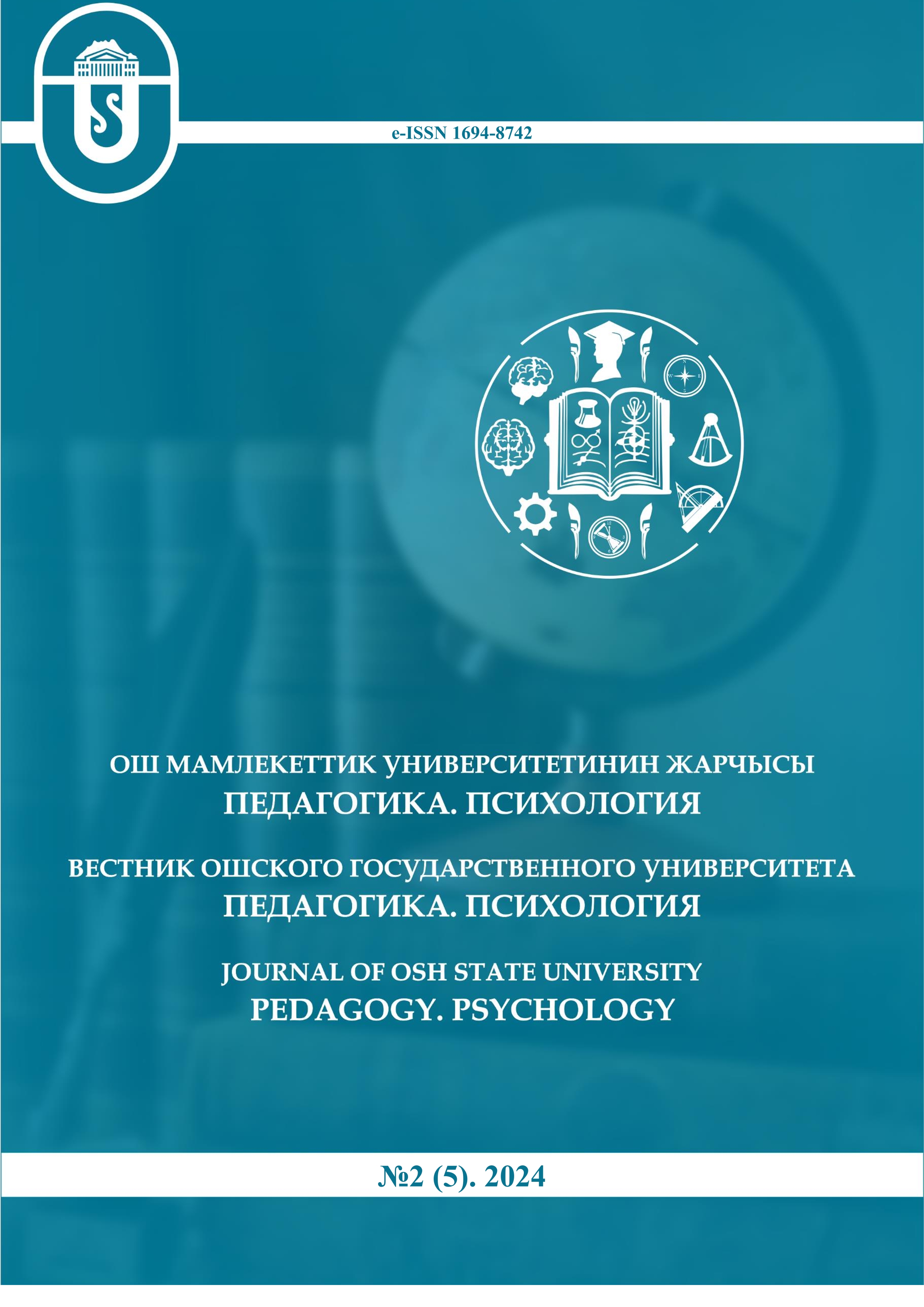IMPROVING THE ORGANIZATION OF THE EDUCATIONAL PROCESS IN A GENERAL EDUCATION SCHOOL UNDER CONDITIONS OF DIGITALIZATION
DOI:
https://doi.org/10.52754/16948742_2(5)_5-2024Keywords:
digital pedagogy, interactive technologies, BilimLand, Google Classroom, digital educational resourcesAbstract
This study provides a comprehensive analysis of the impact of digital technologies on Kazakhstan's school education system. The findings indicate that platforms like BilimLand and Google Classroom significantly enhance students' academic performance. These platforms improve learning outcomes through interactive tasks, immediate feedback, and increased access to educational resources. However, significant disparities in access to digital resources and the internet between urban and rural schools affect student performance. In urban schools, well-developed infrastructure contributes to better academic results, whereas in rural areas, improving teacher digital literacy and infrastructure is crucial for the full integration of digital technologies.
References
Асанова Г. (2021). Цифровая грамотность педагогов как фактор успешной цифровизации образования. Вестник
педагогических наук, 12(4), 45–57.
Асылбеков, М. (2021). Внедрение Google Classroom в школах Казахстана: проблемы и перспективы. Современное образование в Казахстане, 3(2), 68–75.
Garrison, D. R., & Kanuka, H. (2004). Blended learning: Uncovering its transformative potential in higher education. The Internet and Higher Education, 7(2), 95-105.
Hennessy, S., Ruthven, K., & Brindley, S. (2010). Teacher perspectives on integrating ICT into subject teaching: Commitment, constraints, caution, and change. Journal of Curriculum Studies, 37(2), 155-192.
Hodges, C., Moore, S., Lockee, B., Trust, T., & Bond, A. (2020). The difference between emergency remote teaching and online learning. Educause Review, 27(1), 1-12.
Hughes, J. E., & Thomas, R. (2014). A framework for integrating technology into teacher education programs. Educational Technology, 54(2), 25-29.
Келдибекова А.О., Кожобеков К.Г. (2023) Расширение цифровой компетентности студентов: опыт деятельности Центра цифровых навыков ОшГУ. Известия Национальной Академии наук Кыргызской Республики, S8, 107-117.
Келдибекова А.О., Тагаев У.Б., Мамыргазы кызы К. [и др.] Управление магистерской образовательной программой в информационно-технологической среде (2023) Международный журнал гуманитарных и естественных наук, 1-4 (76), 117-121.
Kim, D., Song, H. D., & Lindner, J. R. (2018). Factors influencing faculty members’ decision to adopt web-based assessments. The Internet and Higher Education, 20(2), 14–20.
Министерство цифрового развития, инноваций и аэрокосмической промышленности Республики Казахстан. (2023). Программа "Об утверждении Концепции цифровой трансформации, развития отрасли информационно-коммуникационных технологий и кибербезопасности на 2023–2029 годы". Астана: МЦРИАП РК.
Мусаева, Ж. (2020). Оценка использования платформы BilimLand в образовательных учреждениях Казахстана. Образование и наука в Центральной Азии, 6(3), 102–115.
Selwyn, N. (2012). Education in a Digital World: Global Perspectives on Technology and Education. Routledge.
Жумабаева, М. (2020). Проблемы и перспективы цифровизации образования в Казахстане. Педагогика и образование в XXI веке, 5(1), 33–48.
Downloads
Published
How to Cite
Issue
Section
License
Copyright (c) 2024 Едил Ердалиев, Айгуль Алдабергенова

This work is licensed under a Creative Commons Attribution-NonCommercial 4.0 International License.

